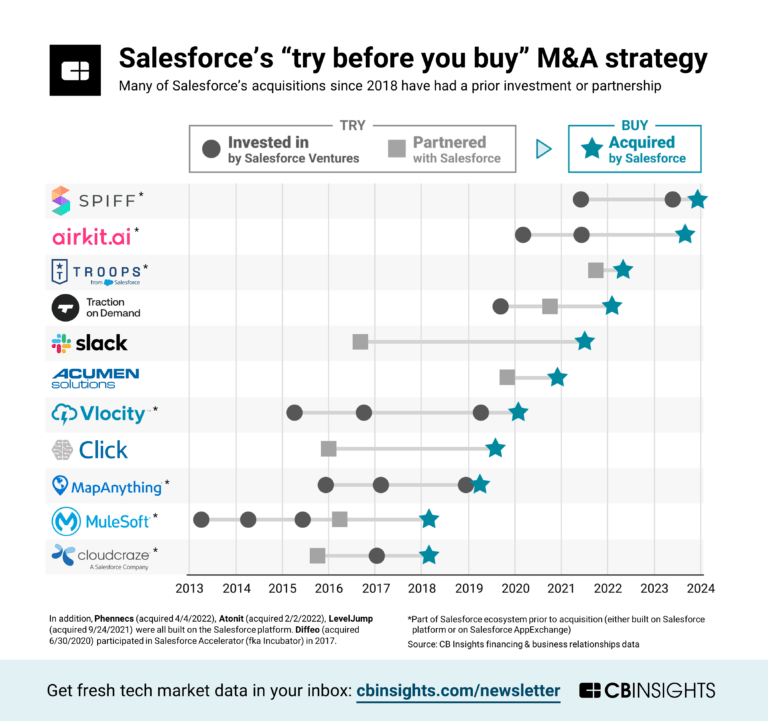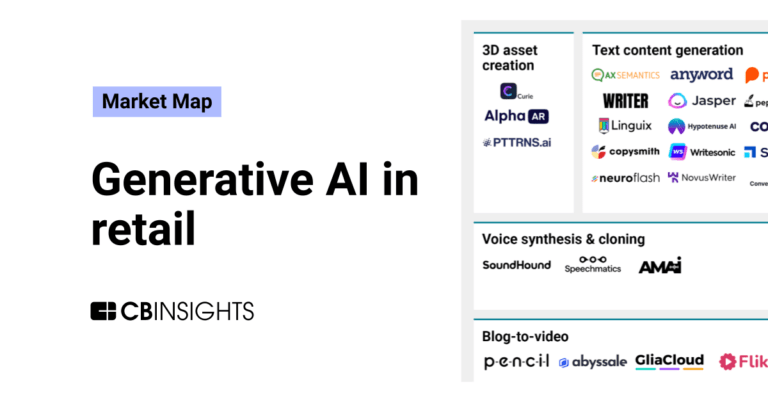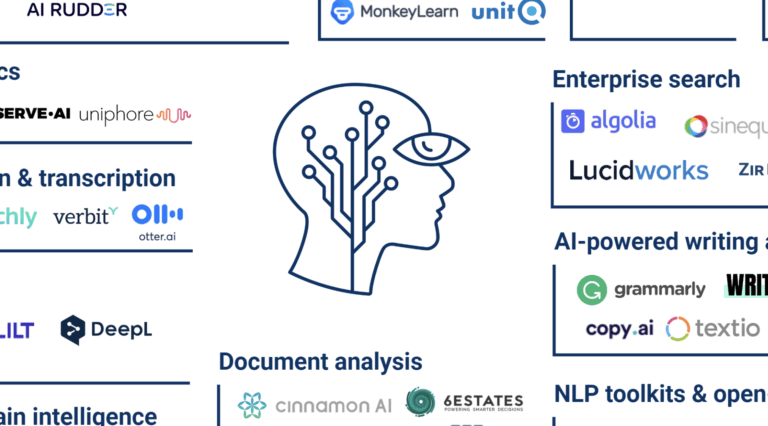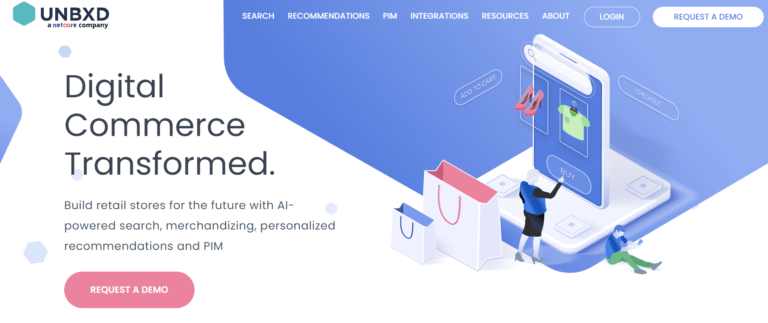
Algolia
Founded Year
2012Stage
Secondary Market | AliveTotal Raised
$334.34MLast Raised
$1.33M | 1 yr agoRevenue
$0000Mosaic Score The Mosaic Score is an algorithm that measures the overall financial health and market potential of private companies.
-17 points in the past 30 days
About Algolia
Algolia operates as an end-to-end AI search and discovery platform in the technology sector. The company offers a suite of search solutions that leverage natural language processing and vector search technology to deliver relevant search experiences across web, mobile, and voice-enabled devices. Algolia primarily serves sectors such as retail e-commerce, B2B e-commerce, marketplaces, media, and SaaS. It was founded in 2012 and is based in Palo Alto, California.
Loading...
Algolia's Product Videos


ESPs containing Algolia
The ESP matrix leverages data and analyst insight to identify and rank leading companies in a given technology landscape.
The insight engines market comprises solutions and technologies that leverage AI, NLP, and ML to enable organizations to extract valuable insights from large volumes of data. These platforms go beyond traditional search methods by understanding user intent and context, allowing users to discover relevant information and gain actionable insights. By analyzing structured and unstructured data from v…
Algolia named as Leader among 15 other companies, including Coveo, Squirro, and Expert.ai.
Algolia's Products & Differentiators
Algolia Search
Algolia Search is a fully-hosted, multi-tenant, hybrid search API, which can also be deployed as a single-tenant platform for larger clients. Algolia Search is the world's first and only API-First Search and Discovery platform with a hybrid search engine, which comprises both keyword and semantic search in a single API. This API platform is blazing fast, massively scalable, and, importantly, cost effective.
Loading...
Research containing Algolia
Get data-driven expert analysis from the CB Insights Intelligence Unit.
CB Insights Intelligence Analysts have mentioned Algolia in 5 CB Insights research briefs, most recently on Feb 23, 2024.
Expert Collections containing Algolia
Expert Collections are analyst-curated lists that highlight the companies you need to know in the most important technology spaces.
Algolia is included in 13 Expert Collections, including Unicorns- Billion Dollar Startups.
Unicorns- Billion Dollar Startups
1,244 items
Grocery Retail Tech
831 items
Startups providing B2B solutions to grocery businesses to improve their store and omni-channel performance. Includes customer analytics platforms, in-store robots, predictive inventory management systems, online enablement for grocers and consumables retailers, and more.
AI 100
99 items
Winners of CB Insights' annual AI 100, a list of the 100 most promising AI startups in the world.
Tech IPO Pipeline
825 items
Market Research & Consumer Insights
734 items
This collection is comprised of companies using tech to better identify emerging trends and improve product development. It also includes companies helping brands and retailers conduct market research to learn about target shoppers, like their preferences, habits, and behaviors.
Artificial Intelligence
14,767 items
Companies developing artificial intelligence solutions, including cross-industry applications, industry-specific products, and AI infrastructure solutions.
Latest Algolia News
Sep 17, 2024
Credit: Getty Images by cnythzl If you listen closely, you may hear the holiday bells jingling in the near distance as retailers start preparing for the peak holiday season. A key focus this year is how to navigate evolving consumer sentiment and continue delivering value for cost-conscious shoppers. Many people are facing considerable stressors already, so retailers should seek out ways to make the shopping experience frictionless. Could personalization be the answer? About 70 percent of B2C retailers consider personalization to be an essential part of their e-commerce strategy, however, it’s important to know how consumers feel about these strategies. A recent Algolia consumer survey of 1,000 U.S. adults uncovered a few key trends that show how retailers can be helpful rather than creepy when it comes to personalized experiences this peak season. Is Personalization Creepy or Helpful? Some 58 percent of consumers have felt a retailer’s personalized recommendations were creepy, but even so, this hasn't prevented people from participating in the data-powered e-commerce world. More than half (60 percent) of respondents purchased an item they directly searched for on a retailer’s site while 37 percent bought an item that was recommended based on their buying and browsing history. Implications for Retailers There’s a knowledge gap for consumers around how their data is being utilized by retailers. At the same time, personalization is only effective when fed accurate activity, so it requires buy-in to achieve helpful results. The key for retailers is to be transparent in their data collection practices and communicate how these insights will shape personalized recommendations. To Be Helpful, Be Transparent Consumers are likely to share their browsing and purchasing activity with a retailer if they know this information will support enhanced e-commerce experiences, according to 58 percent of consumers. Going deeper, the survey asked people what would make them more likely to provide data with a retail website, and complete transparency on how the data will be used was top of the list (54 percent). Information on the retail website’s data security and privacy policies (35 percent) came in second, followed by incentives through loyalty programs and perks (29 percent). Implications for Retailers When planning for peak, retailers must be upfront about how they’re using customer data to enhance the shopping experience — and offering discounts, free samples or trials, or another perk can go even further for the budget-minded shopper. Consumers Want More From Retailers We can’t ignore that some consumers are hesitant to share their data, and yet 59 percent of shoppers think that retailers can do more to improve personalization. Respondents said they would be open to sharing the below information with a retail website if it meant they’d experience a more tailored approach: their shopping preferences based on what they pick and choose on the retailer’s website (49 percent); purchase history on the retailer’s website (33 percent); browsing history on the retailer’s website (31 percent); and direct feedback and reviews (22 percent). The survey also found that 60 percent of consumers would use a “thumbs up/thumbs down” feature to train future recommendations on a retailer’s website. It’s also worth noting that only a fraction (6 percent) of people think retailers already have something similar in place. Implications for Retailers Retailers have an opportunity to treat personalization more like a social media platform. Consumers are aware that their engagements often personalize their algorithms on apps like TikTok and Pinterest, so why not get personalized shopping recommendations that are user-friendly? Retailers can empower their customers to take charge of their personalization journey, offering them ways to opt in/opt out of the information they want to disclose. This allows shoppers to give feedback for future tailored experiences in a privacy-focused way. The holiday season is stressful for retailers and consumers alike, but personalization can go a long way in making the gift-giving process easier by serving people relevant, tailored recommendations. Before the peak holiday season, retailers should take note of what consumers are willing to disclose and alter their digital ecosystem accordingly. Otherwise they risk losing out on a positive customer experience during the busiest time of the retail calendar. Piyush Patel is chief ecosystem officer at Algolia , a leader in globally scalable, secure, digital search and discovery experiences that are ultrafast and reliable.
Algolia Frequently Asked Questions (FAQ)
When was Algolia founded?
Algolia was founded in 2012.
Where is Algolia's headquarters?
Algolia's headquarters is located at 3790 El Camino Real, Palo Alto.
What is Algolia's latest funding round?
Algolia's latest funding round is Secondary Market.
How much did Algolia raise?
Algolia raised a total of $334.34M.
Who are the investors of Algolia?
Investors of Algolia include Karmel Capital, Aglae Ventures, Accel, Salesforce Ventures, Twilio and 26 more.
Who are Algolia's competitors?
Competitors of Algolia include Glean, Vectara, Constructor, Vantage Discovery, Hebbia and 7 more.
What products does Algolia offer?
Algolia's products include Algolia Search and 1 more.
Who are Algolia's customers?
Customers of Algolia include Decathlon , Swedol, PlayPilot, Gymshark and Walgreens.
Loading...
Compare Algolia to Competitors

Lucidworks is a company that focuses on search and discovery software, operating within the technology sector. The company offers a platform that improves search and browse experiences, personalizes shopper and employee experiences, and connects agents and customers. It primarily serves sectors such as ecommerce, customer service, and workplace applications. Lucidworks was formerly known as Lucid Imagination. It was founded in 2007 and is based in San Francisco, California.

Constructor specializes in AI-powered search and product discovery solutions within the e-commerce sector. The company offers a platform that provides online shopping experiences through personalized search results, recommendations, and data-driven insights, aiming to optimize key performance indicators for enterprise ecommerce brands. Constructor's services cater primarily to the ecommerce industry. It was founded in 2015 and is based in San Francisco, California.

Klevu is a company that specializes in artificial intelligence and natural language processing within the ecommerce industry. The company offers a discovery platform that includes smart search, category merchandising, and product recommendations, all designed to enhance the shopping experience on ecommerce websites by leveraging real-time shopper intent. Klevu primarily serves the ecommerce industry. It was founded in 2013 and is based in Helsinki, Finland.
Attivio is a company that specializes in cognitive search and knowledge discovery, operating within the artificial intelligence and text analytics industry. The company offers a platform that provides natural language processing, machine learning, and text analytics capabilities, enabling users to search and analyze data at scale. Attivio primarily serves sectors such as customer support, risk avoidance, and unified digital workplaces. It was founded in 2007 and is based in Newton, Massachusetts.

Nosto is a company specializing in AI-powered commerce experience management within the technology sector. Its platform offers a suite of tools for personalization, merchandising, and intelligent site search to create relevant and personalized shopping experiences. Nosto's solutions cater to various sectors, including ecommerce, by providing data-driven insights and integrations for enhancing online customer engagement. It was founded in 2011 and is based in Helsinki, Finland.

Syte is a technology company specializing in AI-powered visual search and product discovery solutions for the eCommerce sector. The company offers a platform that enhances online shopping experiences by providing visual AI tools for search, personalized recommendations, and automated product tagging. Syte primarily serves the fashion, home decor, and jewelry industries with its product discovery platform. It was founded in 2015 and is based in Tel Aviv, Israel.
Loading...




